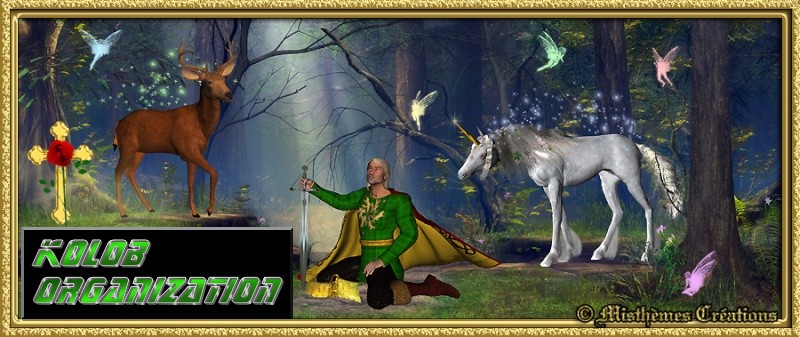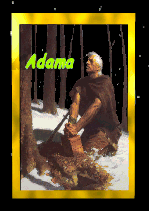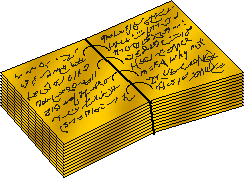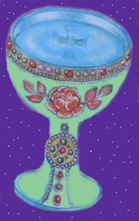
Forum encyclopédique d'histoire des Mormonismes et de la Franc-Maçonnerie & archéologie - sciences - aéronautique - paranormal - ufologie- orbs - ésotérisme - symbolisme
|
|
| | K'ung-fu-tzu or Kongfuzi (Confucius) |  |
| | | Auteur | Message |
|---|
Commandeur Adama
Magister Ordo Kolob - Admin

Nombre de messages : 8905
Age : 60
Localisation : Pays de Néphi - Mormon forest
Date d'inscription : 16/02/2007
Chevalier de Kolob - Vers la Sagesse
 A reçu la Lumière: 180 A reçu la Lumière: 180
 En quête du Vase Précieux et Elu: En quête du Vase Précieux et Elu:
    (150/200) (150/200)
 A la recherche du couple de Licornes du Jardin d'Eden: A la recherche du couple de Licornes du Jardin d'Eden:
    (7/700) (7/700)
 |  Sujet: K'ung-fu-tzu or Kongfuzi (Confucius) Sujet: K'ung-fu-tzu or Kongfuzi (Confucius)  Mer 28 Mai - 13:14 Mer 28 Mai - 13:14 | |
| Confucius,  (551-479 BC -- Wade-Giles K'ung-fu-tzu or Pinyin Kongfuzi), or Master K'ung, whose life defines the end of the Spring and Autumn Period in Chinese history, becomes long after his death the dominant Chinese philosopher both morally and politically. In the Warring States Period Mencius ( Meng Tzu) (c.390-305 BC) extended and systematized Confucius's ideas; but with Confucius's adoption in the Hàn Dynasty as the official moral and political doctrine of the State, the Confucian tradition became so broad that "Scholar" or "Literatus" became all but synonymous with "Confucian," and so Confucianism could simply be called the Ju Chia [   ], or School of the Literati -- one of the Six Schools of Chinese philosophy. As one of the "Three Ways,"  or  (the three "doctrines" or religions), together with Taoism [  ] and Buddhism [  ], Confucianism [  ] also grew into one of the traditional religions of the Hàn Chinese [1]. The following table gives the basic moral terminology of Confucius, with the Chinese characters. This goes a long way to explaining the nature of Confucius's moral doctrine, since each term embodies the values or disvalues considered morally important. The table is divided into categories that are familiar from the structure of ethics in Western philosophy. Indeed, while many people may think of Indian or Chinese philosophy as intuitionistic or mystical, which is rather like what we do find in Taoism, Confucianism has been said to be a hundred times more rationalistic than Western philosophy. Confucian ethics are certainly clear and uncompromising, with points of similarity to Immanuel Kant and Christianity. BEINGDOING/MEANSENDS  Rén, "benevolence, charity, humanity, love," kindness. The fundamental virtue of Confucianism. Rén, "benevolence, charity, humanity, love," kindness. The fundamental virtue of Confucianism.  Confucius defines it as "Aì rén," "love others." Confucius defines it as "Aì rén," "love others."
[Analects XII:22] |  Yì, "right conduct, morality, duty to one's neighbor," righteousness. Yì, "right conduct, morality, duty to one's neighbor," righteousness. |  Lì, "profit, gain, advantage": NOT a proper motive for actions affecting others. The idea that profit is the source of temptation to do wrong is the Confucian ground of the later official disparagment of commerce and industry. Lì, "profit, gain, advantage": NOT a proper motive for actions affecting others. The idea that profit is the source of temptation to do wrong is the Confucian ground of the later official disparagment of commerce and industry. |  The Master said, "The gentleman (chün tzu, The Master said, "The gentleman (chün tzu,  ) )  understands yì. The small/mean man (hsiao-jen, understands yì. The small/mean man (hsiao-jen,   ) understands lì." [Analects IV:16] ) understands lì." [Analects IV:16] |  Li3, "propriety, good manners, politeness, ceremony, worship." Li3, "propriety, good manners, politeness, ceremony, worship."  Xiào, "to honor one's parents," filial piety. Xiào, "to honor one's parents," filial piety. | Yì may be broken down [Analects IV:15] into:  zhong1, doing one's best, conscientiousness, "loyalty" [2]; and zhong1, doing one's best, conscientiousness, "loyalty" [2]; and  shù, "reciprocity," altruism, consideration for others, "what you don't want yourself, don't do to others" [Analects XV:24 or 23]. shù, "reciprocity," altruism, consideration for others, "what you don't want yourself, don't do to others" [Analects XV:24 or 23]. | | quoted definitions, Mathews' Chinese-English Dictionary, Harvard, 1972; quotations from Analects translated by D.C. Lau, Penguin Books, 1979 |
 Confucius himself had a simple moral and political teaching: to love others; to honor one's parents; to do what is right instead of what is of advantage; to practice "reciprocity," i.e. "don't do to others what you would not want yourself"; to rule by moral example (  ) instead of by force and violence; and so forth. Confucius thought that a ruler who had to resort to force had already failed as a ruler -- "Your job is to govern, not to kill" ( Analects XII:19). This was not a principle that Chinese rulers always obeyed, but it was the ideal of benevolent rule. It should be noted, however, that even such humane principles are paternalistic and statist, without a hint of the ideals of individual liberty that are the basis of modern liberal society. Nevertheless, the Confucian ideal avoids the worst of modern paternalism with the principle of government by example and by "Not Doing" (  ), putting Confucianism closer to Taoism than to modern practices of authoritarian control. Confucius thought that government by laws and punishments could keep people in line, but government by example of virtue (  ) and good manners (  ) would enable them to control themselves ( Analects II:3). "The way the wind blows, that's the way the grass bends" ( Analects XII:19). Self-control, indeed, is the basis of all the industrious virtues that have made the Chinese people economically successful whenever they have been allowed to prosper, whether in California, Malaya, or China proper. Unfortunately, although Confucius himself says, "Wealth and high station are what men desire" ( Analects, IV:5), later Confucians (beginning no later than Mencius) turned warnings against the temptation of profit (  ) into a condemnation of profit, which meant that their influence was often turned against the development of Chinese industry and commerce. Thus, Confucians themselves were perfectly happy to seek "high station," while stiffling the ability of ordinary Chinese to produce "wealth." Over time, this was an evil influence in Chinese history. | |
|   | | Commandeur Adama
Magister Ordo Kolob - Admin

Nombre de messages : 8905
Age : 60
Localisation : Pays de Néphi - Mormon forest
Date d'inscription : 16/02/2007
Chevalier de Kolob - Vers la Sagesse
 A reçu la Lumière: 180 A reçu la Lumière: 180
 En quête du Vase Précieux et Elu: En quête du Vase Précieux et Elu:
    (150/200) (150/200)
 A la recherche du couple de Licornes du Jardin d'Eden: A la recherche du couple de Licornes du Jardin d'Eden:
    (7/700) (7/700)
 |  Sujet: Re: K'ung-fu-tzu or Kongfuzi (Confucius) Sujet: Re: K'ung-fu-tzu or Kongfuzi (Confucius)  Mer 28 Mai - 13:15 Mer 28 Mai - 13:15 | |
| their influence was often turned against the development of Chinese industry and commerce. Thus, Confucians themselves were perfectly happy to seek "high station," while stiffling the ability of ordinary Chinese to produce "wealth." Over time, this was an evil influence in Chinese history. While the essence of morality is the limitation of self-interest, Confucius is clear that this does not mean complete denial of self. We have already seen a hint of this with Analects XV:23, which begins with the character for "self" and ends with the characters for "others" (or "persons"). If what you don't want for yourself, you shouldn't to do others, then you would like others to do for you what you would indeed like for yourself.  We see a similar word structure, and stronger implication, at Analects VI:28, "If you desire to establish yourself, also establish others."  This sounds more like what Mohism called "mutual profitableness," but it is clearly essential to Confucius. The idea is distilled in a modern Japanese saying, jiri rita, "self profit, profit other," or "self-interest[ed] altruism." This can, of course, also be read in Chinese, as shown. It contains different characters for "self" and "other" than Confucius uses, but these could easily be substituted, as can be seen by clicking on the image for a popup with the corresponding characters. Helping oneself and others at the same time is characteristic of what we might even call the "worldliness" of Confucianism and Chinese civilization. The Chinese have never been very big on the world-denying renunication so characteristic of India; and even though monasticism was brought to China by Buddhism and adopted by religious Taoism, Confucianism, which usually also meant the government, always remained suspicious of it: Monks and nuns were often suspected of being licentious freeloaders, an attitude we see expressed in the Judge Dee novels. The hostility to profit that can occur in Confucianism thus has to compete against this contrary sense that self-interest can be promoted by cooperating with and pleasing others -- the essence of a market exchange. During the T'ang Dynasty, the canon of Confucian Classics became the basis for the great civil service examinations that henceforth provided the magistrates and bureaucrats (the "Mandarins") for the Chinese government. This system is still impressive, but, because of the attitude of the Confucian scholars, it was not entirely to good effect. The founder of the Míng Dynasty (1368-1644) Chu Yüan-chang, an illiterate peasant who rose to expel the Mongols and win the throne, was suspicious of the influence of the scholars. He tried to balance the scholarly with the military establishment so that neither would dominate the government.  Later, when the Chinese sent Admiral Cheng Ho [ Zheng He], a Moslem eunuch who started out as a war prisoner and slave, on seven great naval expeditions into the Indian Ocean between 1405 and 1433, it was the scholars who powerfully opposed engaging in anything so lowly as trade and dealing with such uncivilized barbarians. The expeditions, indeed, visited not only Indonesia and India, but penetrated into the Persian Gulf, the Red Sea, and far down the east coast of Africa. The fleets were large, heavily manned, well armed, and contained ships of nine masts (the baochuan, "treasure ships") that, reportedly, were more than 400 feet long. But when the court faction of the scholars triumphed and ended the expeditions, they also destroyed their records and made it a capital offense to build anything larger than a two-masted ship. This crippled Chinese trade and foreign involvement; and one is left to wonder just how world history would have been different had Vasco da Gama arrived in the Indian Ocean in 1498, just 65 years later, to discover an overwhelming and technologically equal or superior Chinese naval presence. In China itself, the scholars indeed went on to dominate the government and tip the balance against the military, which left the country so unprepared that in 1644 the last Ming emperor was forced to call in Manchuria to deal with a rebellion. The Manchus took advantage of this to take over the country; and so the final Chinese Dynasty, the Ch'ing [ Qing] (1644-1912), wasn't Chinese at all. This was probably not what the scholars would have wanted, but they had certainly brought it about. Curiously, the Ch'ing Emperors adopted scholarly sensibilities and retained Ming naval and maritime policy xenophobia. This left China once again helpless when forces technologically superior to the Portuguese, especially the British, eventually arrived, irresistibly pressing for commercial access to the country. The scholars never did adapt, and the examination system was eventually abolished rather than modernized. A curious and noteworthy aspect of the teaching of Confucius is his arm's length attitude towards religion. There is considerably irony in this, not only because Confucianism later became one of the major religions of China, but in comparison to the life of Socrates, who was born just nine years after Confucius died. Socrates, although he talked about the gods all the time, and saw his own philosophical project as a divine mission, was condemned and put to death for presumably not believing in them. Confucius, although he later became a god, to whom temples were dedicated in every Chinese city, as the patron of students and scholars, nevertheless didn't talk about the gods at all:  The topics the Master did not speak of were prodigies, force, disorder, and gods. [Analects translated by D.C. Lau, Penguin Books, 1979, VII:21, p. 88] The term for "god" here,  ( shin or kami in Japanese), is often translated "spirit" or even "spiritual beings." We see another term in this quote: Chi-lu asked how the spirits of the dead and gods should be served. The Master said, "You are not able to serve to serve man. How can you serve the spirits?" [XI:12, p. 107] "Spirits" or "spirits of the dead" here are kuei,  , "spirits, demons, ghosts." This is a remarkable passage considering the attention given by Confucianism as a religion for one's ancestors and for the care of one's family grave plot. This seems comparable to an instruction from Jesus: [Matthew 8:21] And another of his disciples said unto him, Lord, suffer me first to go and bury my father. [8:22] But Jesus said unto him, Follow me; and let the dead bury their dead. Few Christians are so unconcerned about burial of relatives, or Confucians about the service of spirits. What Confucius honored rather than pious ritual is implied here: The Master was seriously ill. Tzu-lu asked permission to offer a prayer. The Master said, "Was such a thing ever done?" Tzu-lu said, "Yes it was. The prayer offered was as follows: pray thus to the gods above and below." The Master said, "In that case, I have long been offering my prayers." [VII:35, p. 91] This is interpreted to mean that Confucius has been praying all that was necessary just by being good and polite. Further prayers are unnecessary. While the practice of Confucianism was not entirely consistent with these principles of Confucius just expressed, his attitude did have a significant effect on the conduct of Chinese religion, where popular gods possessed less status in terms of politics and high culture than we see in most other civilizations. Thus, while most people have a least heard of major Indian gods, like Shiva and Krishna, I have frequently found entire classes of students who were unable to name even a single traditional Chinese god [3]. The government of Imperial China treated the gods rather like other subjects of the Empire, assigning them rank and promoting or demoting them depending on their popularity or moral wholesomeness. Confucian authorities thus never doubted their standing to judge the status and worth of the gods. The Imperial cult, like Confucius himself, was concerned with much more abstract and impersonal entities, like Heaven. Sometimes "Heaven" is therefore translated "God," but it is a principle, not a personal deity. Its reality, however, does refute attempts to characterize Confucius as the sort of sceptical and positivistic "secular humanist" who has become familiar in modern society. Reference : http://www.friesian.com/confuci.htm | |
|   | | | | K'ung-fu-tzu or Kongfuzi (Confucius) |  |
|
Sujets similaires |  |
|
| | Permission de ce forum: | Vous ne pouvez pas répondre aux sujets dans ce forum
| |
| |
| |
|

